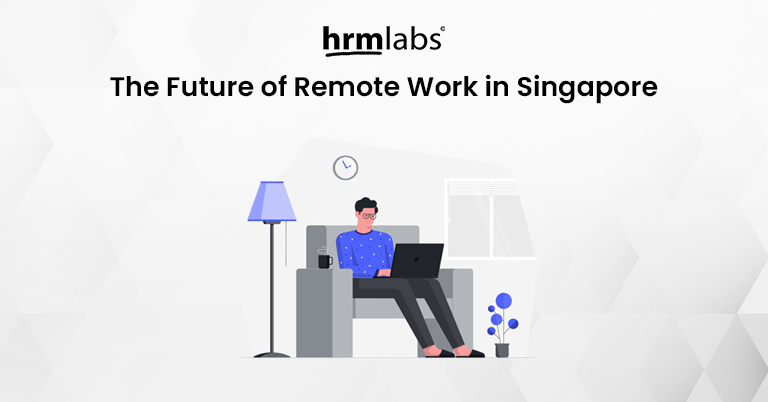Remote work or the ability to work from anywhere with an internet connection, has been on the rise in Singapore in recent years. The COVID-19 pandemic has only accelerated this trend. According to a survey by the Ministry of Manpower, nearly half (49%) or 1,094,900 employed residents in Singapore had worked from home because of COVID-19. This was among the highest compared to European Union (EU) member states.
With many companies and employees quickly adapting to remote work as a way to continue business operations and stay safe. But, as the pandemic subsides and vaccination rates increase, it’s natural to wonder what the future of remote work in Singapore will look like.
Opportunities
It is possible that remote work will continue to be a popular option for both companies and employees in the future. The flexibility and freedom offered by remote work, with the advancements in technology, it has become increasingly easy for employees to work from anywhere with a stable internet connection, and many companies have already begun to embrace this shift towards remote work. As such, it is likely that remote work will remain a viable option for both companies and employees moving forward.
There are several reasons for this.
Increase productivity and cost efficiency
Many companies found that their employees can be just as productive, if not more so, when working from home. This is especially true for jobs that don’t require face-to-face interaction or a physical presence in an office. For example, a software developer can write code from anywhere with an internet connection, and a customer service representative can handle inquiries via phone or chat. By allowing employees to work remotely, companies can save on overhead costs such as office rent, utilities, and supplies.
Higher employee satisfaction
Remote work can be a big benefit for work-life balance. Commuting to and from an office can be time-consuming and stressful, especially in a city like Singapore with heavy traffic. By working from home, employees can avoid this commute and have more control over their schedules. This can lead to increased job satisfaction and reduced turnover.
Better acquisition and retention
Enable working remotely can also be a positive for companies in terms of talent acquisition and retention. By offering remote work options, companies can attract and retain top talent who may not be willing or able to relocate for a job. Additionally, remote work can make it easier for companies to hire international talent, as they will not be limited to candidates who live within commuting distance of the office.
Challenges
While remote work offers many benefits, there are also challenges to consider and it is important for companies and employees to be aware of and address these challenges in order to make the most of this work arrangement.
Communication and collaboration
One of the main challenges is communication and collaboration. It can be more difficult to coordinate and collaborate with team members when everyone is working from different locations. This can be especially true for tasks that require real-time interaction, such as brainstorming sessions or design reviews. To address this challenge, companies may need to invest in technology and training to facilitate virtual communication and collaboration.
Lack sense of community and belonging
Another challenge of remote work in Singapore is maintaining a sense of community and belonging. When everyone is working from home, it can be easy for employees to feel isolated and disconnected from their colleagues. Companies may need to find ways to foster a sense of community and connection among remote workers, such as through virtual social events or team-building activities.
The Blur line between work and life
A third challenge is work-life balance. While remote work can give employees more control over their schedules, it can also be tempting to work longer hours or to blur the lines between work and personal time. This can lead to burnout and reduced productivity. To address this challenge, it is important for employees to set boundaries and establish a routine that includes breaks and time for rest and relaxation.
Conclusion
The future of remote work in Singapore is likely to be a mix of in-office and remote work, with some tasks performed in an office setting and others done remotely. This hybrid model can offer the best of both worlds: the benefits of remote work such as increased productivity and work-life balance, and the benefits of in-office work such as face-to-face interaction and a sense of community.
Human resource management systems (HRMS) can be extremely helpful for companies that have employees working remotely. An HRMS helps to automate and manage various HR functions, such as payroll, benefits, time and attendance tracking, and performance evaluations. By using an HRMS, companies can easily keep track of their remote employees’ work hours, vacation days, and other important HR information. An HRMS can also facilitate communication between remote workers and their managers, allowing for regular check-ins and feedback.
Overall, an HRMS can greatly aid in the management and organization of remote work, helping companies to make the most of this work arrangement. Don’t let the challenges of remote work hold your company back, take control with HRMLabs – the most powerful HRMS in Singapore.
Chat us on WhatsApp for more information about HRMLabs.
Or, schedule a demo.



